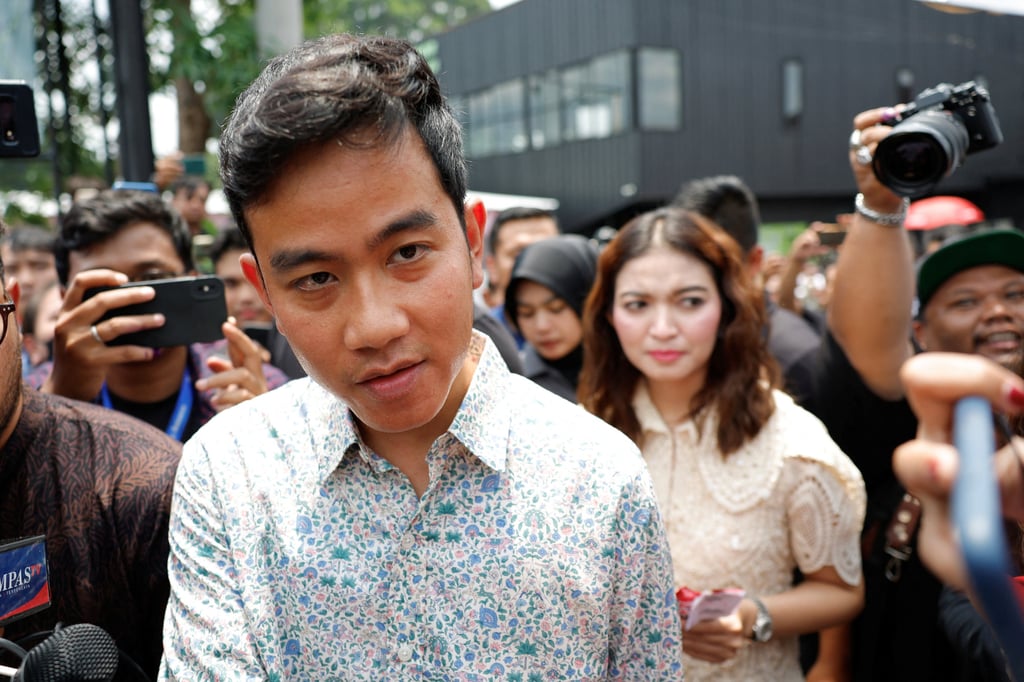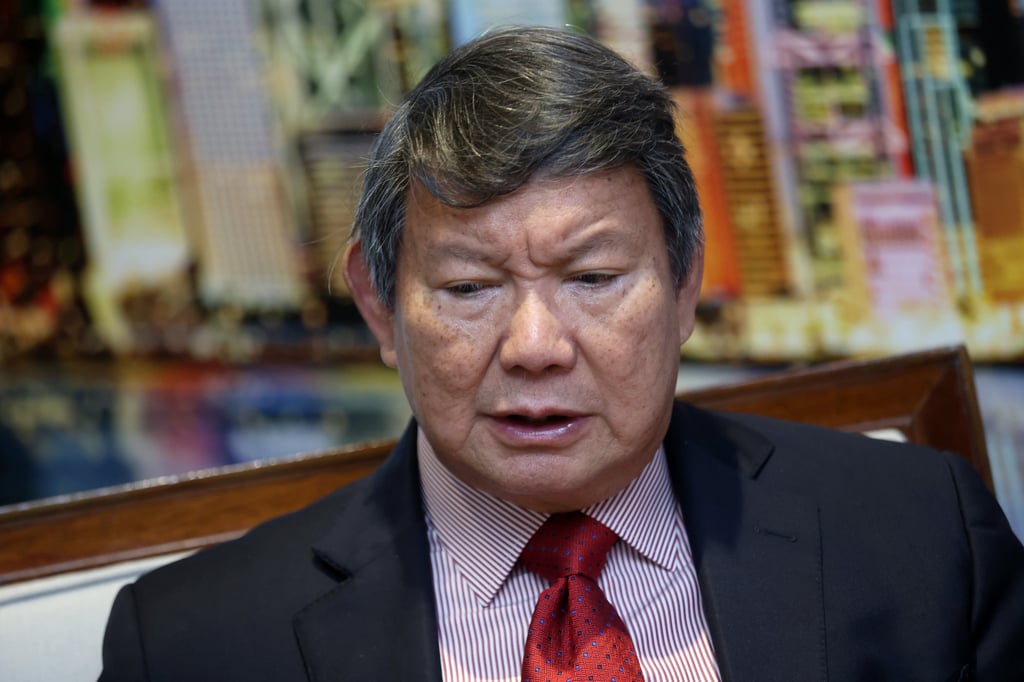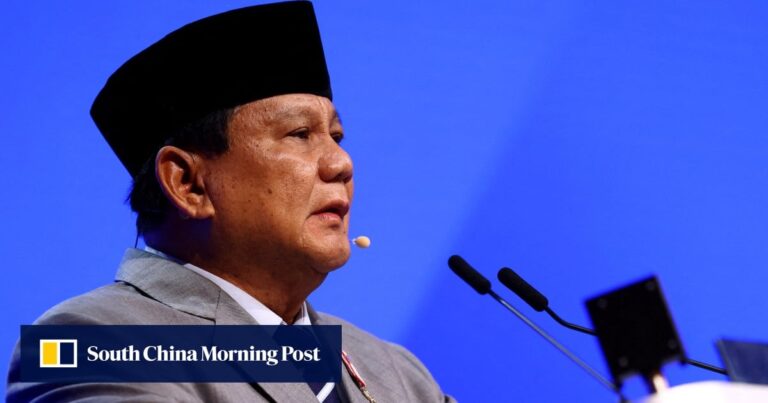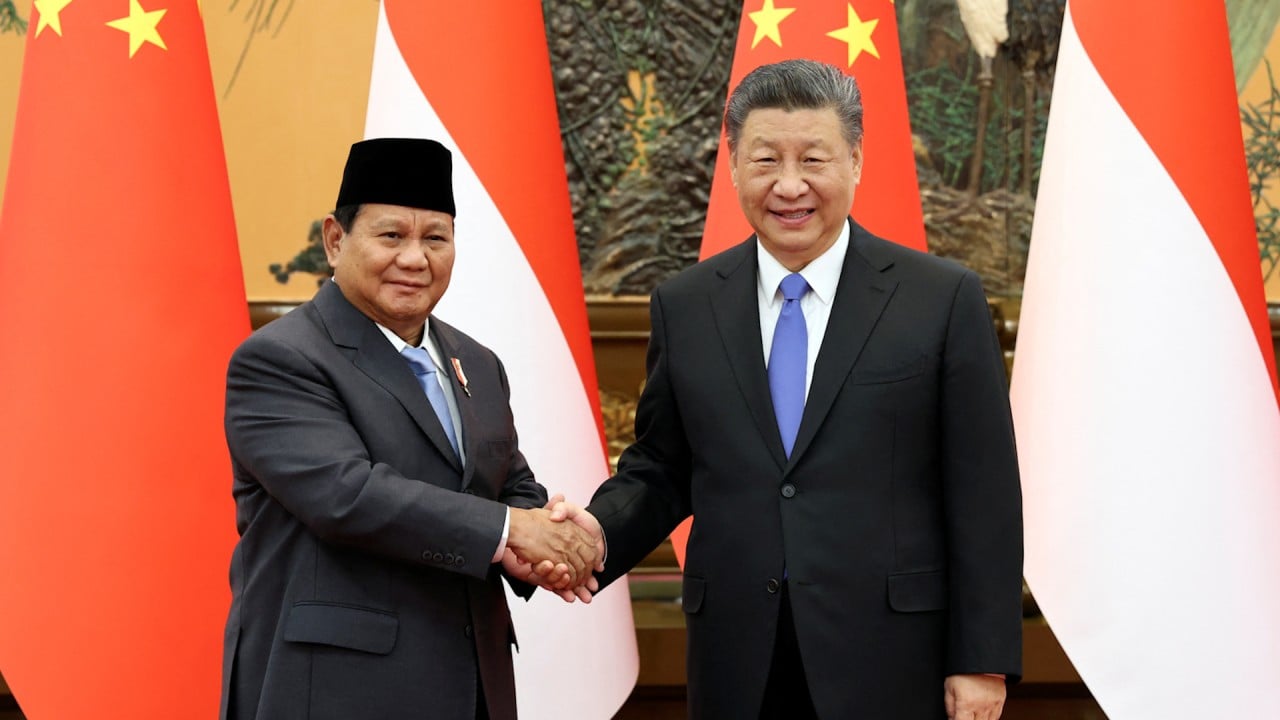Thomas, Prabowo’s close aide on financial matters and Gerinda party treasurer, said his appointment showed “continuity” between the previous and incoming governments.
But analysts say the timing of the appointment says a lot about Prabowo’s relationship with Widodo and the direction the next president will take in filling top government positions.
Adi said getting the cabinet members right was crucial for Prabowo to secure a second term, allowing him to implement policies effectively and maintain voter support.
He said the move could also be a way to reassure investors and markets of a smooth transition of power, especially as questions are raised about Prabowo and Widodo’s differing ambitions for the outgoing president’s legacy, the Nusantara Plan.
While relations between the two appear to be cordial, local media have reported speculation about the nature of their relationship, suggesting there may be signs of tension.
Ian Wilson, a senior research fellow at the Centre for Indo-Pacific Studies at Murdoch University in Perth, said it was unusual for a sitting president to make “transitional appointments in the final months of his term”.
“I can’t help but speculate that President Jokowi is trying to curry more favor in order to protect the interests of himself and his family after he leaves office,” Wilson said, using a nickname for President Widodo.

About loyalty
Wilson said the new appointments signaled the possibility of even more political favouritism and cronyism.
“You can’t really distinguish between them because Gerindra is controlled by Prabowo’s relatives,” Wilson said.
“These appointments are also intertwined with Prabowo’s family’s vast business and financial interests. One theory is that these appointments will be a way for Prabowo’s family to reap the rewards of his long-running campaign to become president.”
Prabowo first ran for high office in 2009 as a vice presidential candidate, then ran for president in 2014 and 2019. He lost all three times, twice to Joko Widodo.
Prabowo’s brother, tycoon Hashim Djojohadikusumo, was heavily involved in all three election campaigns as a key adviser and financier.
Thomas, who has been appointed deputy finance minister, currently serves as deputy chief executive officer of Al-Sari Group, a mining, agriculture and commodities trading conglomerate owned by his uncle Hashim.

Rumours were rife that Thomas might also run for the coveted post of finance minister, but he denied such rumors, saying his uncle Prabowo was only considering “professional candidates” for the post.
Meanwhile, Sudaryono, the newly appointed deputy agriculture minister, also serves as chairman of Gerindra’s regional executive committee in Central Java, highlighting Prabowo’s tendency to favor political supporters.
“Trust, compatibility and loyalty are his priorities when deciding who to appoint to his next cabinet,” said Ariya Fernandes, a researcher at the Indonesian Institute for Strategic and International Studies. “This trust has not been earned easily and has been tested by the passage of time.”
Prabowo has maintained a core group of loyal aides who have supported him throughout his tumultuous political career, he said.
Lack of ability?
Political patronage has long been a part of Indonesian governance and Prabowo is poised to continue that trend, after experts say Widodo has made several questionable cabinet decisions, including promoting candidates without the right qualifications.
“Looking back at Jokowi’s administration, some positions may have been meritocratic. He hired technocrats and experts. [Finance Minister] “Sri Mulyani,” Arya said.
“However, many positions reflect political considerations towards various parties as the president needs the support of the DPR. [Indonesia’s House of Representatives].”
This includes appointing National Mandate Party Chairman Zulkifli Hasan as trade minister despite his lack of experience in dealing with trade issues.
Budi also serves as chairman of Projo, a volunteer group that supported Widodo’s presidential election, and some critics have seen his ministerial role as a “pay-off” for supporting the president.
Indonesia has long relied on a model that balances politically aligned ministers with more capable deputy ministers, Wilson said.
He said Prabowo was likely to continue with the model as it was an effective way of balancing the need for competent governance with the “frenzy of Indonesian politics giving concessions to political allies”.
“Indonesia has a lot of incredibly experienced, intelligent people who are intellectually gifted and have a strong sense of commitment to their country,” Wilson said. “I’m skeptical that they’ll be able to navigate the maze of political interests and be appointed.”



